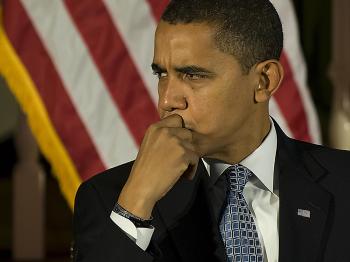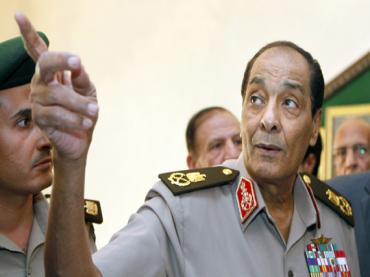CSMS Magazine Staff Writer
Washington finds its back swinging against the wall Monday, trying to find the right words to explain what took place in Egypt when that country’s Supreme Council headed by Field Marshall Tantawi severely limits the power of the presidency, reducing the president into a little more than a figurehead. All this happened ahead of the release of the election results.
A spokesperson for the Pentagon moved quickly to defuse the situation. “We are deeply concerned about the new amendments to the constitutional declaration, including the timing of their announcement as polls were closing … We support the Egyptian people in their expectation that the (SCAF) will transfer full power to a democratically elected civilian government, as the SCAF previously announced.” This sounds more like a stage play, rather than a honest declaration.
Just last March, the Obama Administration released $1.3 billion of annual military aid to Egypt despite the fact the whole world could see what was happening on the ground in Egypt was anything but progress on the road to democracy. The Pentagon claimed it wanted to maintain those close ties, but would “monitor events closely.” This is to say that Egypt is a client state. It doesn’t matter what the generals do, as long as they do not break from the US fold.
“It is unclear who will rule, who the real leaders will be, and who – if anyone – represents the people,” said Anthony Cordesman at the Center for Strategic and International Studies in Washington. “What is clear is that Egypt is no closer to stability and a predictable path to the future than before,” he added.
The Brothers are headed to the presidency
 In latest development, Washington is worried. Mohammed Morsi claims victory, and most major news organizations seem to have acknowledged the fact. Ahmed Shafik, Mubarak’s last prime minister, is refusing to accept defeat. Although the Muslim Brotherhood, which Morsi represents, is far from being a threat to the Supreme Council of the Armed Forces (SCAF), the men in uniforms would have preferred one of their own to maintain the status quo. It was this anticipation that may have indicated the SCAF’s swift move to reduce drastically the limit of power of the presidency.
In latest development, Washington is worried. Mohammed Morsi claims victory, and most major news organizations seem to have acknowledged the fact. Ahmed Shafik, Mubarak’s last prime minister, is refusing to accept defeat. Although the Muslim Brotherhood, which Morsi represents, is far from being a threat to the Supreme Council of the Armed Forces (SCAF), the men in uniforms would have preferred one of their own to maintain the status quo. It was this anticipation that may have indicated the SCAF’s swift move to reduce drastically the limit of power of the presidency.
Marshall Tantawi, Mubarak’s defense minister for 20 years, is the head of the council. He is reportedly to be the brain master, without a doubt, behind the army power grab. Fearing a popular backlash, he went on TV to announce that he is committed to keeping his promises to the Egyptians people, who entrusted him with their revolutionary gains to hand power to civilians by July 1. That pledge, endorsed by the United States, would be satisfied, he said, with the induction of a new civilian president by June 30.
Actions speak louder than words, and the actions are the dissolving of Parliament, the re-imposition of Marshall Law which allows the police to arrest, at will, streets demonstrators, and the morphing of the civilian president into a toy in the hands of the generals. According to the SCAF, a president can only appoint a government. But every law emanated from that government MUST be endorsed by SCAF. A timetable set down for writing a constitution, passing it by referendum and then electing a parliament could leave Tantawi in charge until 2013. Meanwhile, streets protests will continue. One can be certain of that.
Will the Brothers angrily react to the army’s iron’s hand? Few believe this will be the case. Last week, several Brotherhood parliamentarians protested, contesting the army’s power to dissolve the present parliament and, with other groups, called for a mass demonstration on Tuesday. It is somewhat humiliating to be barred from the House of Parliament, especially when one is a duly elected official. Moreover, the Brothers were in the majority in Parliament. But they still lack the country’s general support, and their uneasy symbiosis with the army has already shattered their trust among average Egyptians. It was reported that only 30 % of eligible voters went to the polls on election day. This means that vast majority of the people simply stayed away. They did not see a future in a masquerade.
In a statement, the movement ( Muslim Brotherhood) rejected SCAF’s right to issue a decree but avoided direct confrontation: “SCAF must keep its word to the people to hand over executive power to an elected president,” it said. In fact, it is “executive” power that the generals plan to transfer, while keeping “legislative” rights.


